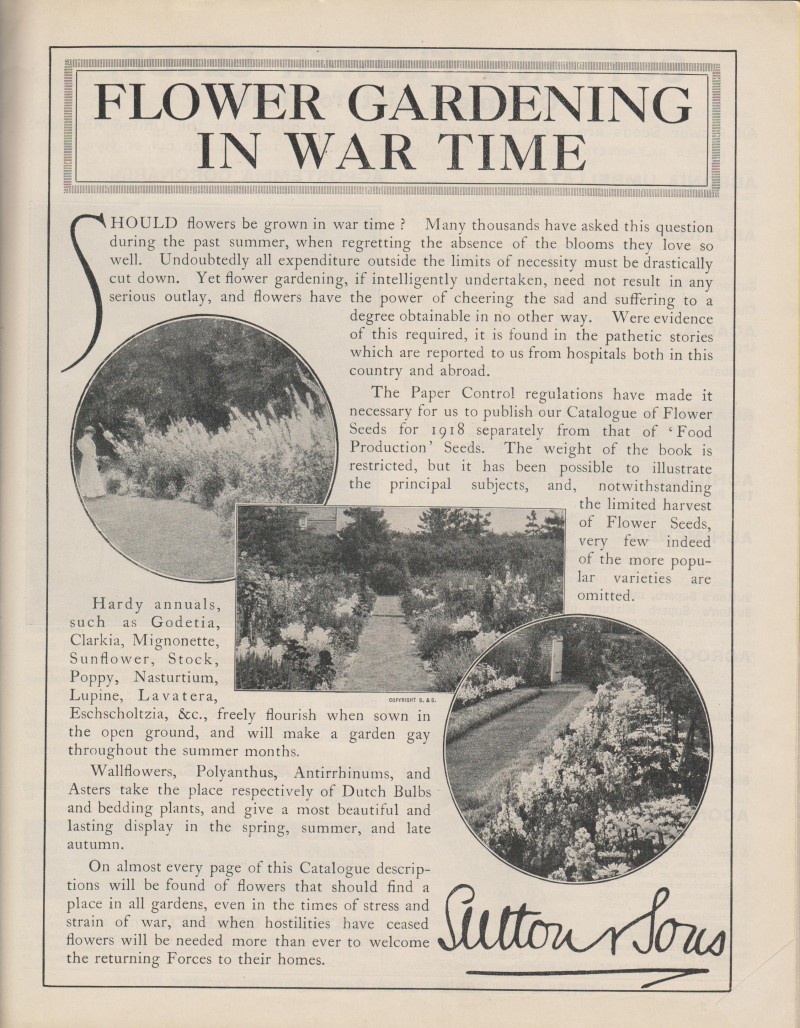For something that is often very small a flower has the ability to provoke intensely strong emotions. Flowers bring joy and also give comfort to those who are sad or unwell. We give flowers to the mother of a new-born child to welcome him or her to the world. We include flowers as we celebrate birthdays, weddings and other special occasions. We also place flowers on the coffins of our loved ones as part of our final farewell. Few things in this world have the power to express our emotions so well yet perhaps in times of national crisis the production of flowers instead of food could be considered frivolous.
The Suttons & Son 1918 catalogue asked “Should flowers be grown in war time?” and pondered the question as follows:
“Undoubtedly all expenditure outside the limits of necessity must be drastically cut down. Yet flower gardening, if intelligently undertaken, need not result in any serious outlay, and flowers have the power of cheering the sad and suffering to a degree obtainable in no other way.
The need for flowers in the garden and in the house has been more than ever felt during the past summer. In the earlier days of war, flowers were almost regarded as an unnecessary luxury, but the lack of them has served to show how invaluable they are in these times. Sowing flower seeds is the cheapest and most effective means of beautifying our gardens and a little time and thought devoted to the selection and growing of some of the hardier and more easily cultivated kinds will be well repaid.
Hardy annuals such as Godetia, Clarkia, Mignonette, Sunflower, Stock, Poppy, Nasturtium, Lupine, Lavatera, Eschscholtzia &c., freely flourish when sown in the open ground, and will make a garden gay throughout the summer months.
Wallflowers, Polyanthus, Antirrhinums and Asters take the place respectively of Dutch Bulbs and bedding plants and give a most beautiful and lasting display in the spring, summer and late autumn.
On almost every page of this Catalogue descriptions will be found of flowers that should find a place in all gardens, even in times of stress and strain of war, and when hostilities have ceased flowers will be needed more than ever to welcome the returning Forces to their homes.”
Last Updated on June 21, 2021 by Suttons Horticultural Team


